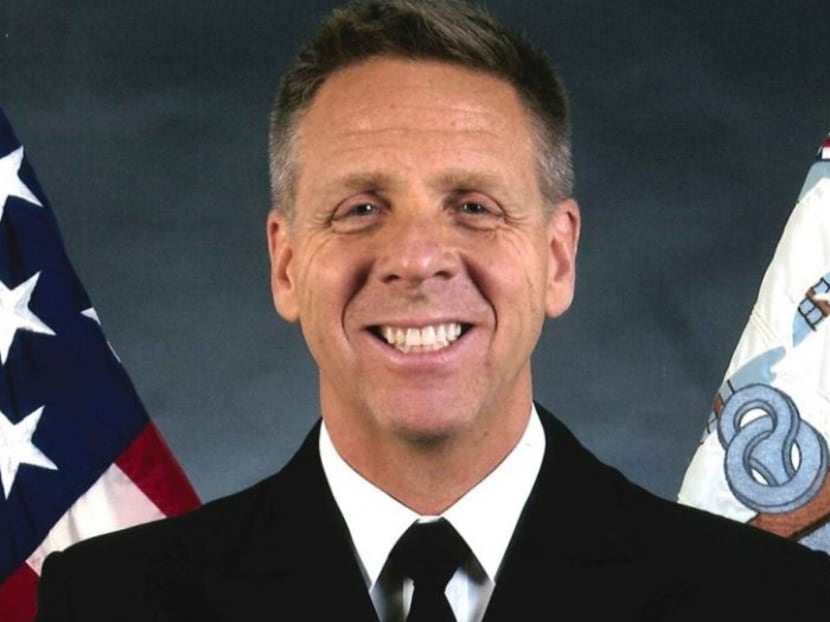US Navy’s new Pacific Command chief expected to step up drive to counter China’s submarine power
HONG KONG — The nomination of an anti-submarine and electronic warfare specialist as the new head of the US Pacific Command suggests that the Pentagon will be more focused on measures to counter China’s rapid build-up of its submarine forces in the region, military experts have said.

The nomination of an anti-submarine and electronic warfare specialist as the new head of the US Pacific Command suggests that the Pentagon will be more focused on measures to counter China’s rapid build-up of its submarine forces.
HONG KONG — The nomination of an anti-submarine and electronic warfare specialist as the new head of the US Pacific Command suggests that the Pentagon will be more focused on measures to counter China’s rapid build-up of its submarine forces in the region, military experts have said.
Beijing-based naval expert Li Jie said the nomination of Mr Phil Davidson, a four-star admiral, to the post was a mark of America’s “unceasing vigilance” in the face of the rapid development of China’s submarine capabilities.
“There is no doubt that Davidson will also enhance the US Navy’s ASW [anti-submarine] and EW [electric warfare] reconnaissance against China, which is not only his speciality, but also one of Pentagon’s long-term aims to restrain China’s maritime expansion,” Mr Li said.
He added that US had been keeping a careful eye on China’s recent improvements to its mute propulsion and stealth technology.
China has built Asia’s largest submarine base at Yulin, on the south coast of Hainan. The base features underground submarine facilities with tunnel access, shielding Chinese submarines that enter the South China Sea from the prying eyes of US reconnaissance satellites.
The facility has prompted American warships and aircraft to conduct more close surveillance operations in the disputed waters, which are claimed wholly or in part by mainland China, Vietnam, the Philippines, Malaysia, Brunei and Taiwan.
The nomination of Mr Davidson, the current head of the US Fleet Forces Command, to the post was announced by the Pentagon on Wednesday (April 11). He will take over from Admiral Harry Harris, who was last week nominated to become the US ambassador to Australia.
Dr Collin Koh Swee Lean, a submarine expert from the S Rajaratnam School of International Studies at Singapore’s Nanyang Technological University, also agreed that Davidson’s background would bolster the US Navy’s focus on anti-submarine and electronic warfare.
The appointment “could be a response to general trends in the region – for example the focus on building up submarine forces, missile and radar capabilities etc – all of which would require more focus on ASW and EW”, Dr Koh said.
“China, which has been publicly identified as one of the near-peer competitors in the military realm, could also be in mind, of course.”
Mr Peng Guangqian, a retired PLA major general, said that the overall direction of US policy was more important than the appointment of individual military commanders. He also argued that Donald Trump’s administration had been hostile towards China, as shown by the threat to impose tariffs on US$150 billion worth of exports.
“China should be concerned with what the US is going to do in the region,” he said, “and now Washington is launching an outright attack.”
The US has been trying to counterbalance China’s growing reach with its Free and Open Indo-Pacific Strategy, which has seen it trying to build up its quadrilateral alliance with Japan, Australia and India.
Earlier this week, Chinese military sources told the South China Morning Post that Beijing was planning to establish a dual-use space tracking station in Vanuatu.
Defence analysts pointed out this could be used for intelligence gathering and other military purposes targeting America’s allies in the region Australia and New Zealand.
US intelligence also said that within the last few months China had installed equipment on two artificial islands in the South China Sea capable of jamming communications and radar systems, according to The Wall Street Journal.
Mr Harry Sa, a senior US defence and foreign policy analyst at Nanyang Technological University, said Davidson’s nomination was a sensible choice as the maritime sphere was a key aspect to America’s Asia-Pacific policy.
In the role he will not only have to deal with an increasingly assertive China and the South China Sea dispute, but also the nuclear crisis on the Korean Peninsula.
“[Davidson] is aware of China’s rapidly growing subsurface fleet and that the navy’s submarine-hunting capabilities have deteriorated thanks to the US military’s focus on counter-insurgency,” Mr Sa added. SOUTH CHINA MORNING POST






